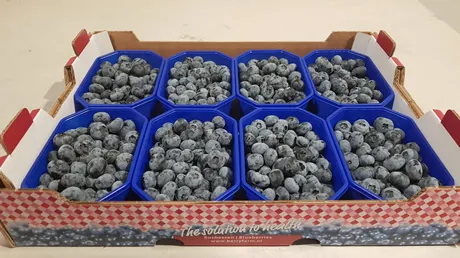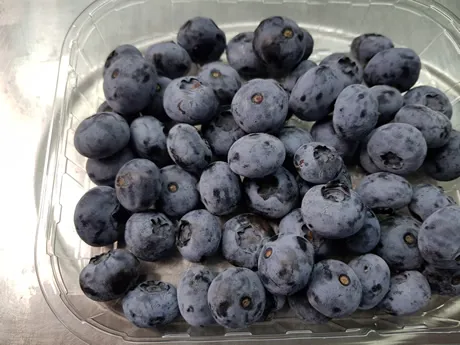Last week, in the Netherlands, Berryfarm.nl began harvesting its blueberries. The company has some 60 hectares of these berries, spread over two locations in the southern Netherlands and northern Germany. "Prices are already under considerable pressure. Practically every European country has started picking," says Sil Moonen.

There is, thus, no chance of premium prices either. "Dutch blueberry cultivation has become a cost price leveler. So growers are looking for alternatives, such as mechanical picking. That's fine, even for the fresh market, as long as you can sell the berries immediately. But should sales stagnate because half of Europe is on vacation, you're producing for the industry. And cultivation in Europe is too expensive for that."

Sil says Dutch supermarkets could do more to promote local berries. "I'm still finding Portuguese, Spanish, and Serbian berries at my local supermarket. That's frustrating. Supermarkets like to let consumers think Dutch growers are their main priority, but Dutch growers have a wafer-thin advantage. As soon as the stores can get cheaper berries from overseas, they do. I was in England last week, and there, growers face the same problem. In Germany, though, they greatly prefer working with local growers," he explains.

"And the government keeps going on about nitrogen and environment. Farming in the Netherlands is becoming incredibly difficult. But I always stay positive. It will be a short season because of the good weather here and in Poland. Then the berries ripen fast. I think many European berries will be off the market by mid-August."
"Hopefully, the prices will revive then too. We have plenty of late varieties, so hopefully, we can take advantage of that. That's if the supermarkets don't switch to Peru as soon as possible," concludes Sil, who exports his berries mainly to Germany and the UK.
For more information:
Sil Moonen Berryfarm.nl
Berryfarm.nl
27 Mortel
6088 AH, Roggel, NL
Tel: +31 (0) 475 494 727
Mob: +31 (0) 653 288 523
Email: sil@silmoonen.nl
